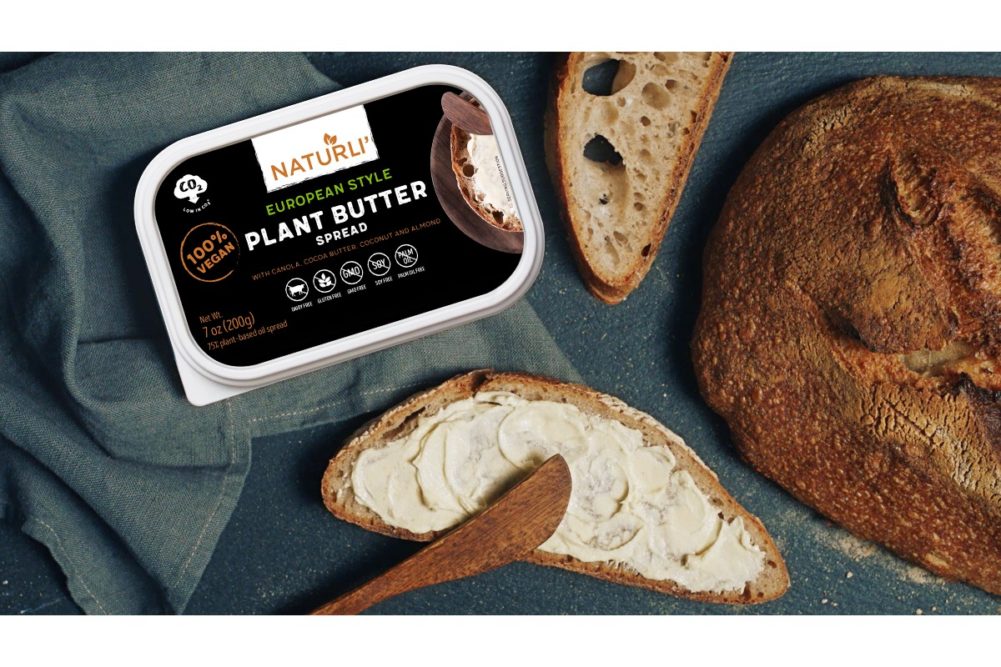Plant-based milk is the largest segment in the plant-based foods industry. With 40.6% of US households purchasing plant-based milks – and 75.7% of consumers repeating their purchases – plant-based milk has become a household staple and a category powerhouse, according to the Plant Based Foods Association (PBFA), San Francisco.
In 2022, the plant-based milk category grew 9% to $2.8 billion. Against a backdrop of heavy inflation, plant-based milk unit sales declined by 2%.
Plant-based creamer, the third largest plant-based category after milk and meat, grew by 24% in dollars and 12% in units. Brands innovated like never before, providing indulgent flavors such as crème brulee, dark chocolate truffle and toasted marshmallow, all of which can be found in the refrigerated creamer department next to animal-based counterparts.
Expanded offerings
Elmhurst 1925, Elma, NY, is debuting a plant-based milk intended for coffee. New Maple Walnut Barista Edition delivers a sweet, toasty two-in-one creamer and steamer to provide a coffee house experience in the comfort of home. The product is formulated to foam, froth and steam just like whole dairy milk. Elmhurst prides itself on offering plant-based fluid products made with the simplest ingredients and unmatched nutrient density. Maple Walnut Barista Edition offers 3 grams of protein from whole walnuts.
Plant-based cheese sales reached $230 million in 2022, a decline of 1.7% from the previous year, according to PBFA. It’s the most challenging dairy category to compete in, as milk fat plays a key role in the taste and functionality of cheese. Plant-based cheeses intended as spreads or snacks are faring better than those intended for cooking and grazing on charcuterie boards.
While Kraft Heinz Co., Chicago and Philadelphia, sold off most of its cheese brands in recent years, it still owns Philadelphia. And now that Philadelphia brand can be found in the US on what it calls “Plant-Based Original.” The top-three ingredients in the non-dairy spread are coconut oil, modified potato starch and fava bean protein.
Bel Brands USA, Lincolnshire, Ill., now offers a plant-based version of its popular red-waxed pucks of BabyBel snacks. Water is the first ingredient, followed by modified food starch and coconut oil.
Using plant-based cheese in finished products is often found to be a more forgiving application. Farm Rich, a division of Rich Products, Buffalo, NY, for example, now offers frozen plant-based mozzarella-style sticks. The finger food features a melty, plant-based cheese in a crisp, golden breading and comes with a side of marinara sauce. The company is growing its plant-based portfolio with oat milk frozen desserts in pint-sized containers. Made without artificial flavors or colors, and without the big nine allergens, the pints come in chocolate and vanilla flavors and join the company’s oat milk soft-serve bases.
The PBFA reports that plant-based ice cream experienced unit sales declines of 9% as well as dollar sales declines of 4%; however, this category still represents one of the largest in terms of plant-based food dollar sales, bringing in $436 million in 2022. Plant-based butter unit sales declined by 11% in 2022, while dollar sales increased by 15% to $310 million. Plant-based yogurt dollar sales were up 5% to hit $425 million and unit sales were down by 5%.
Companies such as Danone North America, Broomfield, Colo., continue to expand offerings in the cultured segment. Its So Delicious Dairy Free brand has been around for more than 30 years. It is now first to market with a line of zero-added sugar coconutmilk yogurt alternatives. Varieties are blueberry, coconut, strawberry and vanilla.
Naturli’ Foods A/S of Denmark, introduced Americans to its extensive line of dairy alternatives in 2022. This includes almond-based cultured beverages, almond- and oat-based drinks and creamers and European-style plant butters made from canola, cocoa butter, coconut and almond. The spread is designed for toast, while the block is ideal for baking, according to the company.
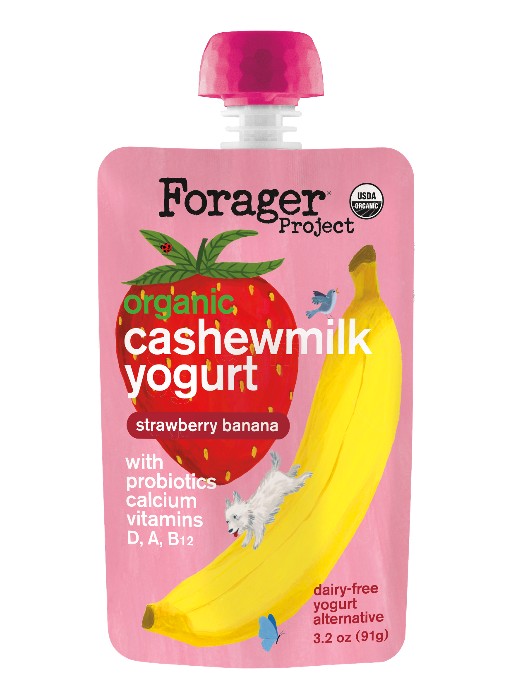 Photo: Forager Project
Photo: Forager ProjectCategory innovations
• Wicked Kitchen, Minneapolis, launched a plant-based collection of ice creams and novelties made with the lupini bean, a first-to-market product in the US. Founded by chefs and brothers Derek Sarno and Chad Sarno, Wicked Kitchen helped ignite the plant-based movement in the UK, the number-one vegan market globally.
• Forager Project, San Francisco, is growing its kids’ line of cashew milk-based yogurt pouches with peach and strawberry-banana flavors, joining last year’s debut of berry, mango and strawberry. The product contains probiotics and is fortified with calcium and vitamins A, D and B12.
• The plant-based cheese sector is getting more sophisticated with smoked wheels from Good Planet Foods, Seattle. Using applewood chips, the 7 oz cheddar and gouda wheels are made from coconut oil, food starches, and chickpea and potato proteins. They join the brand’s shreds, slices and snackable wedges.
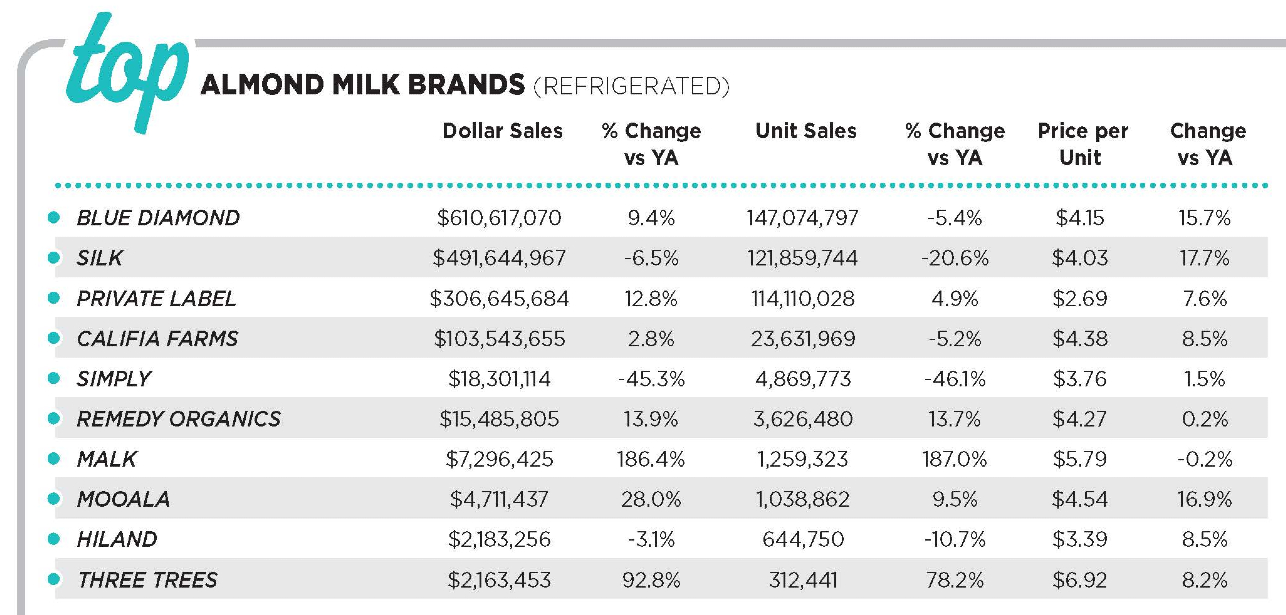
Source: Circana
| Graphic: Sosland Publishing Co.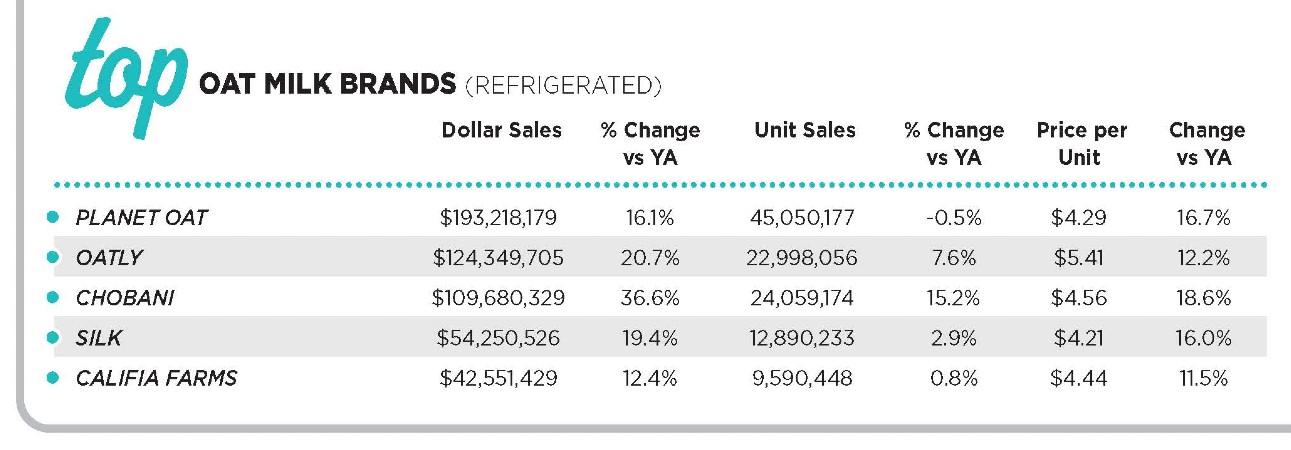
Source: Circana
| Graphic: Sosland Publishing Co.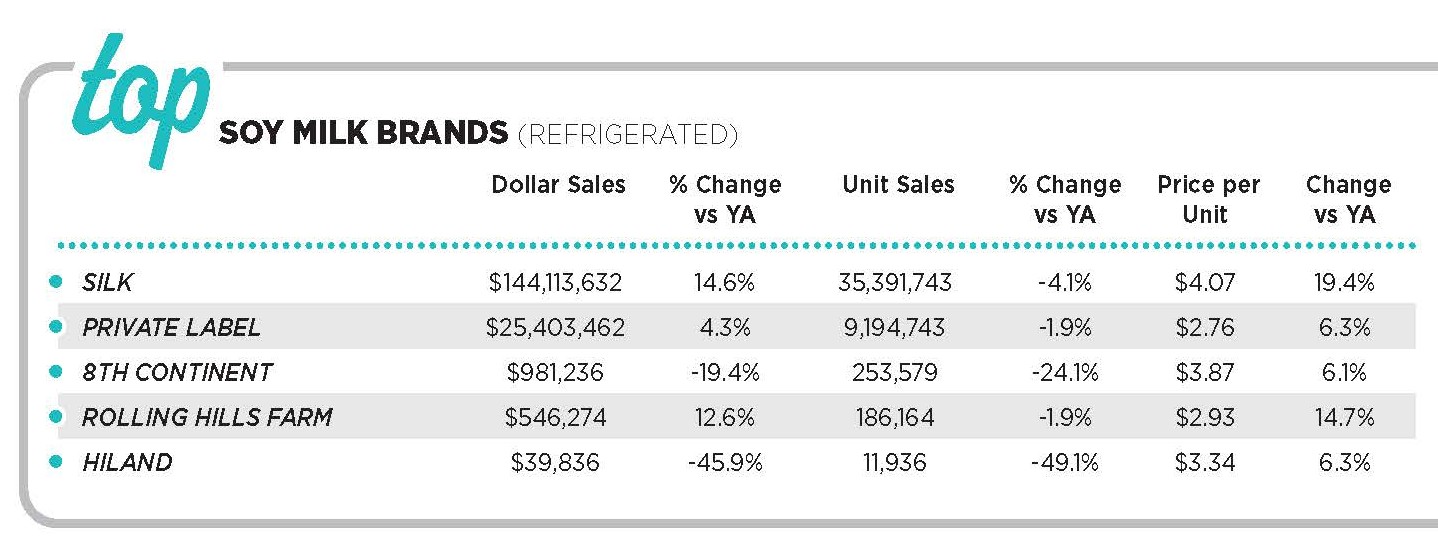
Source: Circana
| Graphic: Sosland Publishing Co.